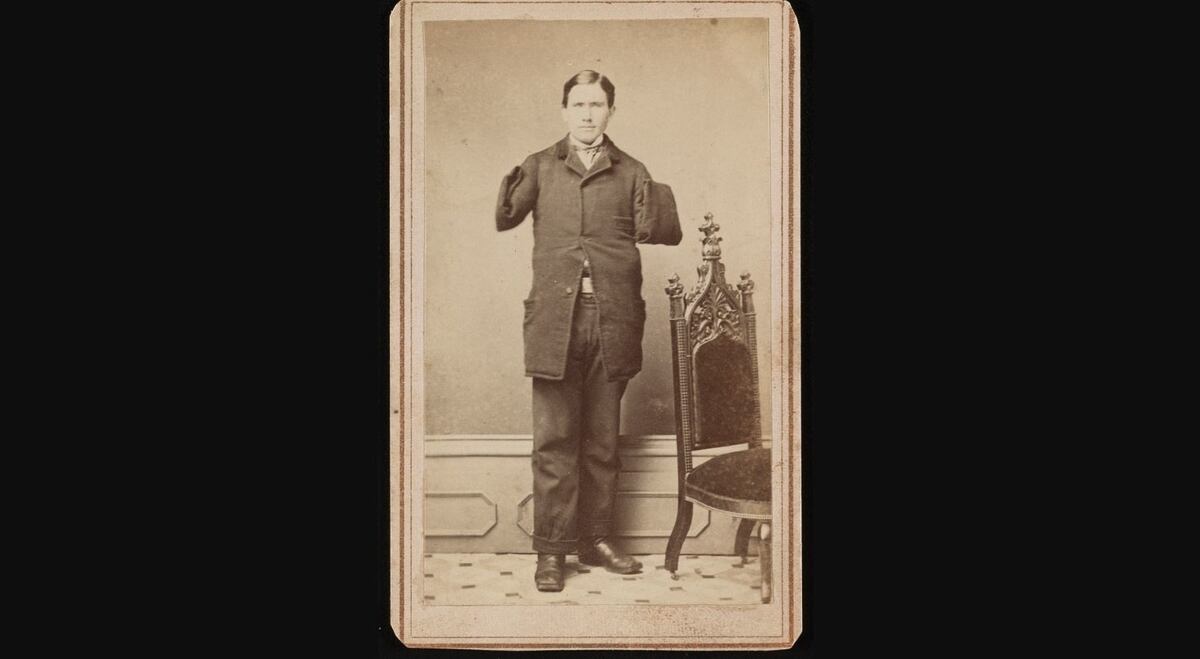A blizzard howled across Illinois, Indiana and Ohio on New Year’s Day 1864, sending temperatures plummeting 88 degrees to 30 below zero. It was a fitting beginning to a year in which bitter political winds battered Northern states.
After nearly 30 months of civil war, the bones of thousands of Northern boys lay in Southern graves or decayed unburied in the thickets and swamps of Dixie.
The war “has carried mourning into almost every home,” President Abraham Lincoln himself observed, “until it can be said that the ‘heavens are hung in black.’”
The conflict was draining $2 million a day from the federal treasury and in prosecuting the war Lincoln’s administration had trampled on constitutionally guaranteed rights like habeas corpus, freedom of speech and freedom of the press.
Faith in the president was falling like the winter temperatures.
In February, Congressman Samuel Pomeroy, a member of Lincoln’s own party, circulated a document promoting Secretary of the Treasury Samuel P. Chase as a replacement for Lincoln in the November elections.
Old Abe’s Emancipation Proclamation, which had gone into effect on Jan. 1, 1863, had pleased abolitionists, but many of them felt it didn’t go far enough.
Other Northerners resented the proclamation, believing it turned a war to save the Union into a war to “free the Negro.”
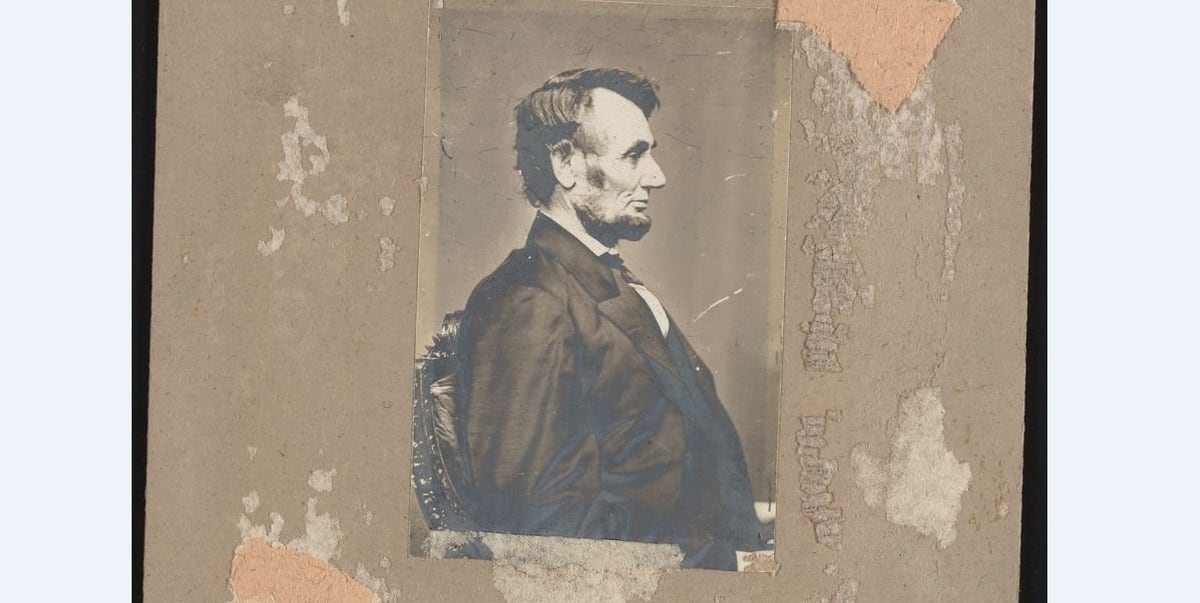
Dissent was particularly strong in states along the Ohio River, where ties to Dixie remained close.
In Coles County, Illinois, where Lincoln’s father had died and his stepmother still lived, citizens led by the county sheriff clashed violently with members of the 54th Illinois Infantry on March 28, leaving nine dead and a dozen wounded among soldiers and civilians.
None of this boded well for Lincoln winning a second term, something no president had done since Andrew Jackson.
Eight states had 10 votes or more each in the Electoral College — Illinois, Indiana, Ohio, Kentucky, Missouri, Massachusetts, New York and Pennsylvania — and he would have to carry most of them. Sentiments in Kentucky and Missouri were even more divided than those of the three states north of the Ohio.
As for the three eastern states, if Massachusetts’ abolitionists felt the president was moving too slowly to free slaves or was too generous regarding reconstruction, they might support a more radical Republican.
Lincoln’s call for militia units had added $3 million to Pennsylvania’s already crushing $30 million deficit, and the population included a strong pacifist element.
New York’s upper and middle classes leaned toward the Republicans, but the large working class was more aligned with Democrats, and New York City had seen days of bloody anti-draft riots the previous summer.
“I am terribly afraid of letting the war run into the next Presidential term,” Horace Greeley, antislavery publisher of the New York Tribune wrote to a prominent Connecticut Republican on Jan. 10. “I fear it will be disastrous to go to the ballot-boxes with the war still pending.”
If voters rejected Lincoln in November, the war to save the Union would almost certainly be lost.
Peace Democrats, his chief political opposition, wanted an end to hostilities immediately, under almost any circumstances.
Southerners believed a Democratic victory in the Northern elections was their greatest remaining hope for securing independence.
If Lincoln won re-election, however, “It would confront the rebels like doom itself,” Union Brig. Gen. Neal Dow told an audience in his hometown of Portland, Maine.
But re-election depended on military success to show voters the war could and would be won soon.
As the editor of Augusta, Georgia’s Constitutionalist wrote on Jan. 22, “The battlefield of 1864 will hold the polls of this momentous decision.”
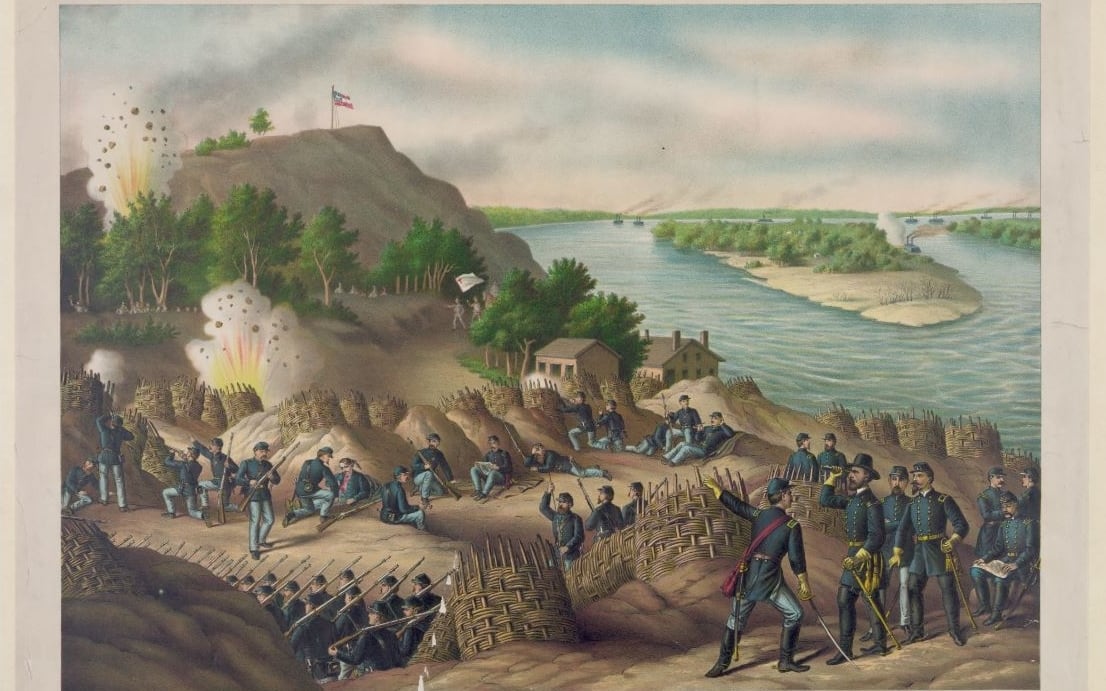
Grant Holds the Battlefield
Lincoln turned to Ulysses S. Grant, who had captured one Confederate army at Fort Donelson in Tennessee, another at Vicksburg, Mississippi, and had routed a third at Chattanooga, Tennessee.
On March 9, Grant became the first U.S. Army lieutenant general on active field service since George Washington, and took command of all Union armies.
The Wilmington (N.C.) Daily Journal swore Lincoln had put Grant in charge so as to “throw all the blame of any failure upon him,” and warned its readers therefore, “Grant will not long remain idle.”
Idleness was not in Grant’s character.
He realized the North had the advantage in a war of attrition, and he grasped the basic rule that governs all fighting, from a clash of nations to a barroom brawl: If the other fellow can get back up after you’ve knocked him down, you haven’t won yet.
Grant intended to knock the other fellow down by engaging and destroying the main Confederate armies. To make sure his opponent couldn’t get back up, he would ravage the South’s ability to wage war, targeting railroads, ports, food supplies and factories.
He left Maj. Gen. George Meade, the victor at Gettysburg, in charge of the North’s largest force, the Army of the Potomac, but attached himself to that army. It would confront the primary Confederate force, Gen. Robert E. Lee’s Army of Northern Virginia.
At Chattanooga, Maj. Gen. William Tecumseh Sherman replaced Grant at the head of the Union’s second-largest force.
Grant ordered his friend Sherman to “break up” the Confederate Army of Tennessee commanded by Gen. Joe Johnston in North Georgia, and then invade the enemy’s interior and ravage his war resources. Once Johnston was dealt with, the critical rail junction and manufacturing city of Atlanta would be a peach ripe for plucking.
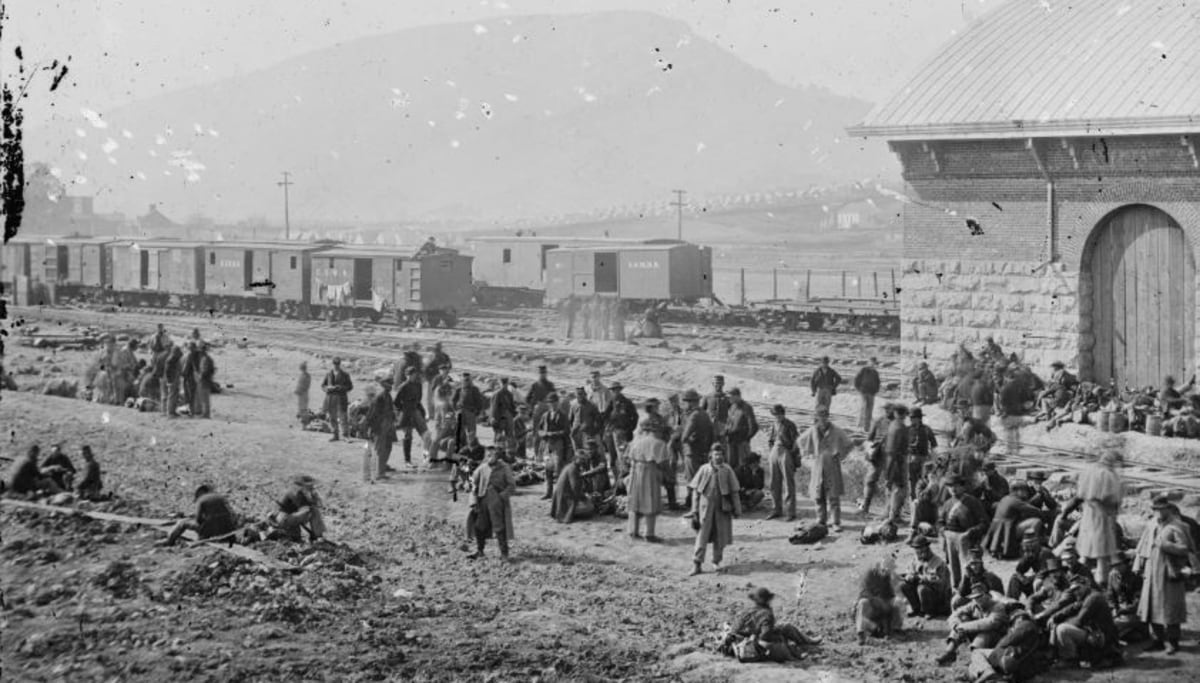
Grant meant to hit his opponents from several directions at once, preventing the thinly-stretched Confederates from shifting troops to reinforce a threatened area.
While he and Meade pushed Lee south toward the Confederate capital of Richmond, another Federal force would come up the James River to capture Petersburg to the south.
Others would secure the Shenandoah Valley and operate against the Virginia and Tennessee Railroad farther west.
All movements were to begin the first week of May.
Additionally, when Maj. Gen. Nathaniel Banks finished slogging through the Louisiana swamps on the Red River Campaign that had begun March 10, he was to march on the port city of Mobile, Alabama.
Grant’s plan looked like a sure-fire winner. On May 4 the Army of the Potomac, more than 100,000 strong, crossed the Rapidan, just 188 days before the presidential election.
Lee, with some 60,000 men, struck the next day in the Wilderness, beginning a summer-long bloodbath for the two armies.
By mid-June, Lee and his still-dangerous army had been forced all the way back to trenchworks that snaked around Richmond and Petersburg — but the Federals had paid dearly for that limited success.
When Grant’s campaign began in the spring, newspaper reports were overly enthusiastic, leading to a popular belief his troops would be in Richmond by Independence Day.
Instead, he was bogged down in slow siege warfare 10 miles outside the city.
Getting that far had cost him 1,000 men per mile — 7,000 of them in less than 30 minutes at Cold Harbor — and many Northerners, including Lincoln’s wife, were calling the hero of Fort Donelson, Vicksburg and Chattanooga a “butcher.”
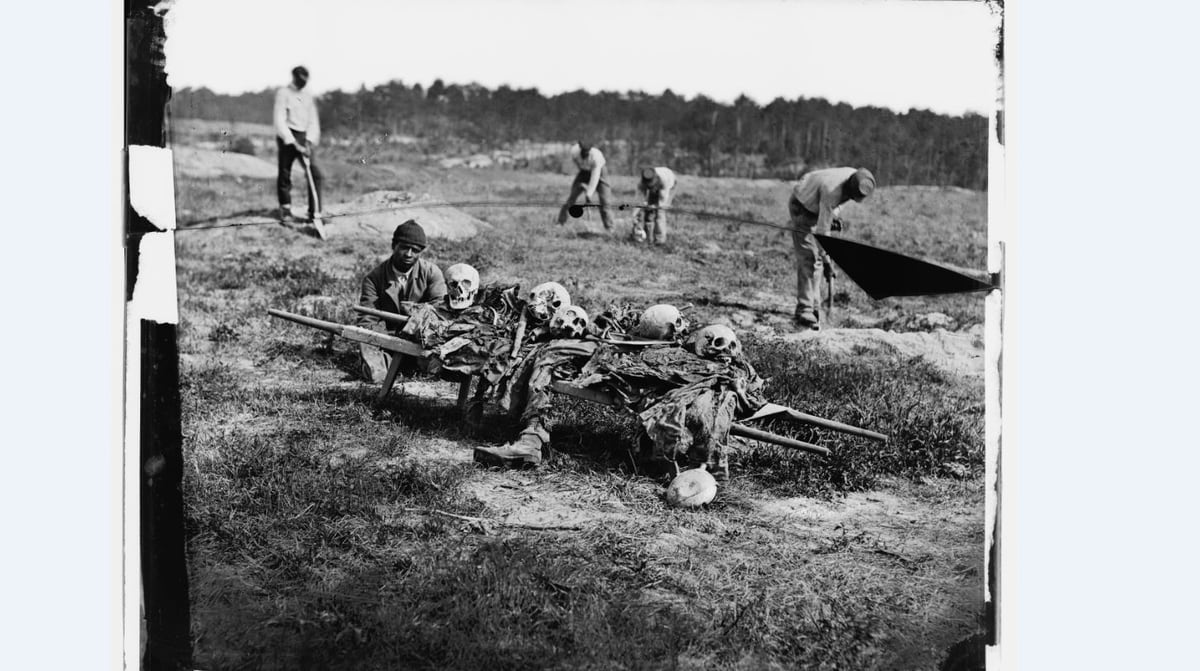
The Civil War Continues
Sherman was also locked into a siege, after maneuvering Johnston out of one strong defensive position after another in Georgia.
By mid-July, the Confederates had fallen back nearly 100 miles to entrenchments just outside Atlanta.
Jefferson Davis relieved Johnston of command and replaced him with John Bell Hood, who immediately went on the offensive. His attacks were always repulsed with more losses than they inflicted, which aided the North’s war of attrition, but Hood was sending a message that the South was still full of fight.
In the largest clash, the Battle of Atlanta on July 22, the Confederates lost 8,500 men; Sherman lost just 3,600. But with fewer than 110 days till Election Day, Hood’s men still fought ferociously and Atlanta remained defiant.
The two largest Union armies’ progress had stalled, and the rest of Grant’s plan was unraveling.
Back on May 5, as Lee and Grant first faced each other in the Wilderness, Maj. Gen. Benjamin Butler — a War Democrat with considerable political influence — arrived at Bermuda Hundred, Virginia, with the 40,000-man Army of the James.
Pierre Gustave Toutant Beauregard, with far fewer men, stopped him cold just seven miles from Petersburg and 15 miles south of Richmond.
In Louisiana, another political general, Nathaniel Banks, had bungled his mission.
On May 19, his bedraggled force returned to New Orleans. The Red River Campaign and Banks’ military career were over, and the tired, dispirited army he left behind wouldn’t be ready to advance on Mobile anytime soon.
In the Shenandoah Valley, German-born Franz Sigel — popular with German-American voters — marched some 6,500 men south, was beaten at the Battle of New Market on May 15, and retreated up the valley.
David Hunter replaced Sigel and began laying waste to the Valley. Lee gambled, weakening his own force to send Jubal Early to deal with Hunter.
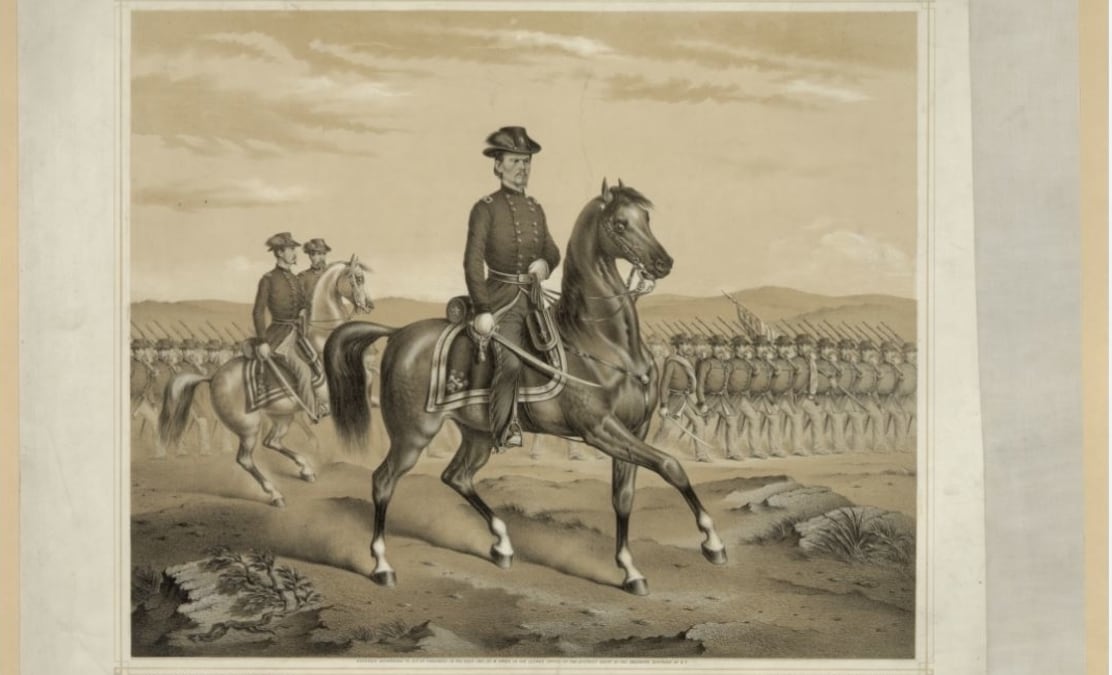
Early’s 15,000 men pushed the Federals into West Virginia, kept marching north and reached the outskirts of Washington around noon on July 11. Had Early not been delayed by fighting at Monocacy Junction and by pausing to collect $20,000 from Hagerstown and 10 times that much from Frederick, Maryland, as payment for Hunter’s predations in the Valley, he might well have broken through the green troops holding the capital’s defenses.
But Union reinforcements arrived, and Early withdrew on the night of July 12, believing he had “scared Abe Lincoln like hell.”
Lincoln had come under fire after he and his wife Mary rode out to watch the fighting on the city’s outskirts. But the bullets zipping past his head didn’t concern him as much as the time zipping by.
Early had been repulsed, but for the first time in the war a Rebel force had attacked the nation’s capital — a bad omen just 120 days before the election.
Confederates were coming at their adversaries from everywhere. Beaten back in one spot, they popped up in another.
Since March, when Grant had been put in charge of Union armies, Southern military forces had repulsed Banks in Louisiana. They had recaptured Plymouth, North Carolina, bagging a 2,500- man garrison.
The Confederate ironclad Albemarle was terrorizing Federal ships on the Roanoke River.
Rebel cavalryman Nathan Bedford Forrest galloped out of Mississippi in March, penetrating as far as Paducah, Kentucky, on the Ohio River.
On April 8, his men captured Fort Pillow north of Memphis, Tennessee. The death toll among the fort’s black soldiers was high, and some eyewitness accounts said many were killed after surrendering.
On June 10 at Brice’s Cross Roads, Mississippi, Forrest ambushed a pursuing Federal column — routing the exhausted men, who abandoned 16 of their 18 guns and all of their supply train.
In mid-May, Confederate Gen. Joseph Shelby began a month of raids in Arkansas and Missouri.
In early June, John Hunt Morgan’s cavalry was operating against Federal garrisons in small communities near Morgan’s hometown of Lexington, Kentucky.
They took $18,000 from a bank at Mount Sterling.
On July 30, after Early’s men had again splashed northward across the Potomac, Brig. Gen. John McCausland burned Chambersburg, Pennsylvania, when his demand for $500,000 cash or $100,000 in gold was refused.
The Confederate message was clear: They weren’t going to quit, Yankee strategy wasn’t working and Lincoln’s government couldn’t protect Northern civilians or soldiers.
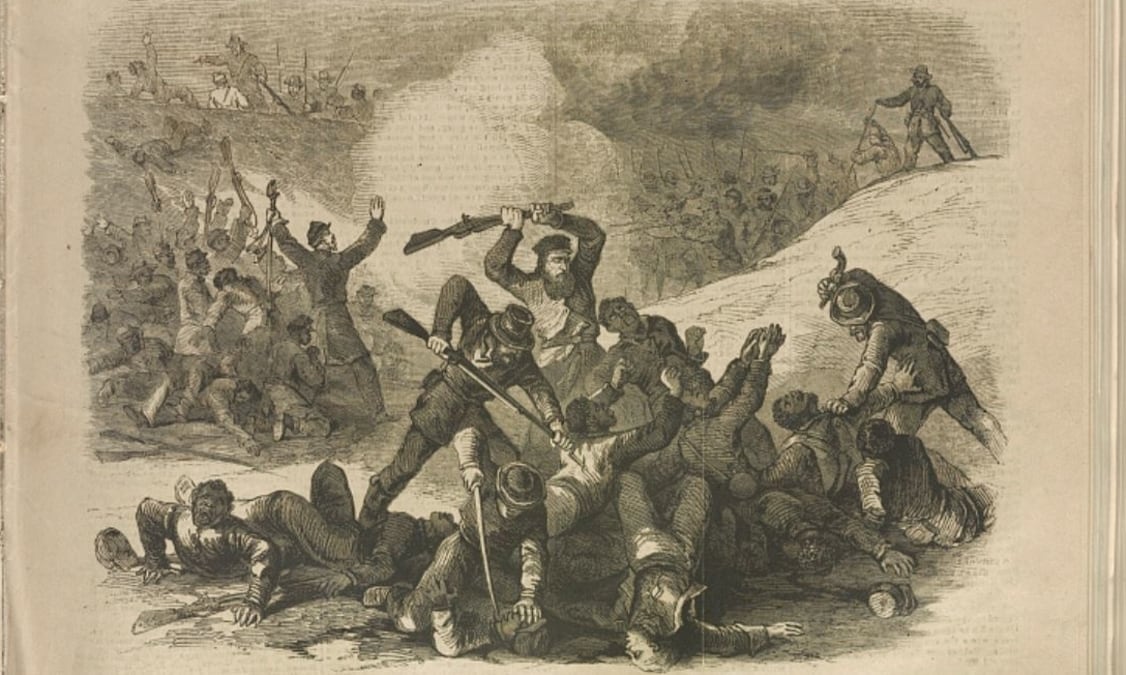
Lincoln Predicts His Defeat
If the rebels weren’t trouble enough, members of his own party assailed Lincoln.
Horace Greeley’s Tribune, which had taken far more potshots at Lincoln than Jubal Early’s men had, called on May 13 for a new Republican nominee.
On May 31, in advance of the Republican convention scheduled at Baltimore, a group of Radical Republicans met in Cleveland, Ohio, and nominated former Union general and staunch abolitionist John C. Frémont, who had been the Republican presidential candidate in 1856.
A few days before the Baltimore convention, Abram J. Dittenhoefer, a Republican from New York, found Lincoln despondent: “It seemed as though he could not forget [his] previous miraculous nomination [in 1860] by a convention in which two-thirds of the delegates favored another candidate; he feared lest now the boot might be on the other leg.”
On June 7 — the same day 7,000 bodies were collected at Cold Harbor, one day before Morgan’s men raided the bank in Mt. Sterling, three days before the Union debacle at Brice’s Cross Roads and 154 days before the November election — the Baltimore convention nominated Lincoln unanimously.
This show of solidarity couldn’t mask serious divisions among Republicans.
Hannibal Hamlin of Maine, who had served as Lincoln’s vice president for the past four years, was cast aside in favor of a Southerner, Gov. Andrew Johnson of Tennessee, a War Democrat.
Republicans hoped his presence on the ticket would entice other War Democrats to vote across party lines.
Conversely, getting Radical Republicans to support Lincoln’s re-election was still an elusive goal.
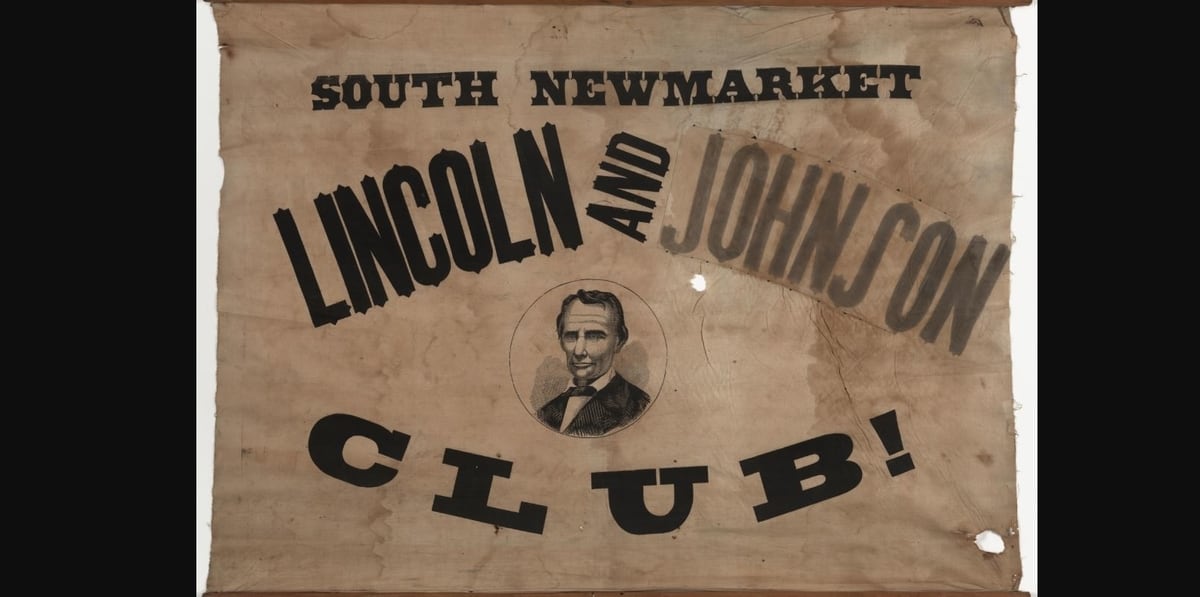
Both houses of Congress had passed a bill sponsored by Sen. Ben Wade of Ohio and U.S. Rep. Henry Davis of Maryland that would have required a majority of a rebelling state’s eligible voters to swear they had never supported the Confederacy and agree to African-American suffrage before that state could be readmitted to the Union.
Lincoln’s plans for reconstruction required only 10 percent of a state’s voters to take a loyalty oath, and the state had to recognize emancipation. He pocket-vetoed the Wade-Davis bill, outraging Radical politicians and their supporters.
Even many moderate voters, both Republican and Democrat, couldn’t stomach the violations of constitutional rights or the skyrocketing national debt any longer.
The nation was already war weary, when, on July 18 — just 113 days before the election — Lincoln called for 500,000 more volunteers. If towns and counties couldn’t fill their quota of volunteers in 50 days, men would be drafted.
Prominent Republicans told the president he was not going to be reelected.
“One thing must be self-evident to him, and that is under no circumstances can he hope to be the next President of the United States,” declared the opposition New York Herald on Aug. 6.
“I am going to be beaten,” Lincoln concluded, “and unless some great change takes place badly beaten.”
A Possible Hope
The first glimmer of hope for “some great change” came not from Lincoln’s armies but from what he called “Uncle Sam’s Web-feet.”
On Aug. 5, Rear Adm. David Farragut damned the torpedoes and ran his feet past the forts guarding Mobile Bay, Alabama.
When the battle was over, Farragut’s men had disabled the Confederate ironclad Tennessee, had sunk or captured every other enemy vessel and taken prisoner Adm. Franklin Buchanan.
Mobile was finished as a major Confederate port, leaving just Wilmington, North Carolina.
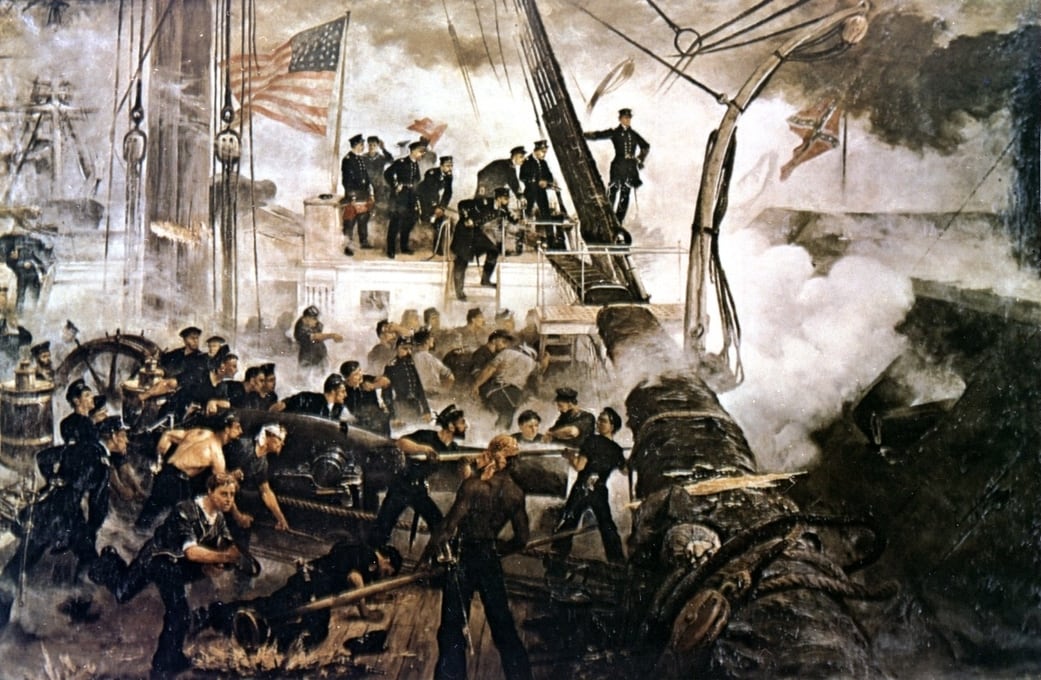
Still, Dittenhoefer wrote that if the president’s doubts about his re-nomination had been serious, “his fear of defeat at the polls developed into a veritable mental panic.”
On Aug. 23, Lincoln asked his Cabinet members to sign a note without reading it. In it he wrote that he anticipated losing the election and he would have to “co-operate with the President-elect so as to save the Union between the election and the inauguration, as my successor will have secured his election on such grounds that he cannot possibly save it afterwards.”
His Democratic opponents hadn’t even held their convention yet. When they finally met in Chicago at the end of August the party’s war faction secured the nomination of a military man, George B. McClellan, as the party’s presidential candidate.
He was popular with soldiers of the Army of the Potomac, which he had twice commanded before Lincoln removed him for failing to pursue the Rebels after the Battle of Antietam.
But Peace Democrats got George Pendleton of Ohio, who had opposed the war from the start, named as McClellan’s running mate. They also hammered a plank into the party’s platform declaring the war a failure and demanding “an immediate effort be made for a cessation of hostilities.”
The Democrats had strapped a peace saddle onto a warhorse, hoping voters would buy the saddle if they didn’t like the horse — or vice versa.
Faced with that conundrum, McClellan didn’t accept the nomination until Sept. 8.
He more or less repudiated the peace plank, declaring, “the reestablishment of the Union in all its integrity is, and must continue to be, the indispensable condition in any settlement…the one condition for peace.”
The war would continue, but he would be open to negotiations with the South in a way Lincoln was not, and there would be no talk of abolition in a McClellan administration.
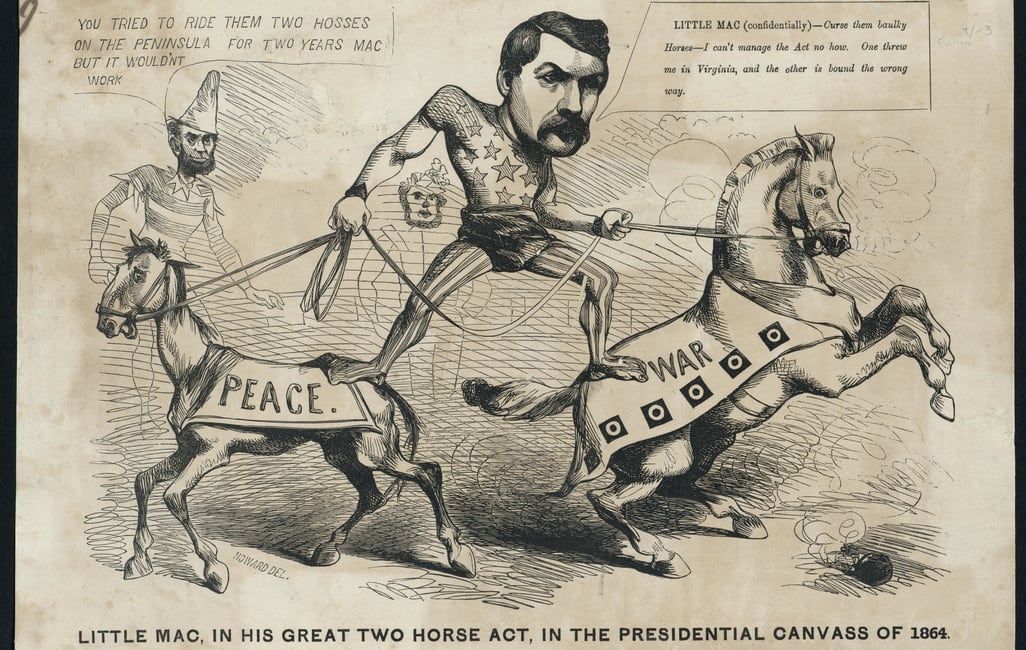
Events had already overtaken McClellan and his party. On Sept. 2, just 67 days before the election, Lincoln received a welcome telegram.
A sword had been thrust into the heart of the Confederacy: Defiant Atlanta had fallen.
Two days later, Union troops in Greeneville, Tennessee, killed raider John Hunt Morgan and 100 of his men.
Meanwhile in the Shenandoah Valley, Philip Sheridan, a Western cavalryman who had replaced Hunter, dealt Confederates stinging defeats, then turned to destroying crops, mills and livestock in the “Breadbasket of the Confederacy.”
The New York Times crowed, “Grant and Sheridan are now stumping in Virginia, Sherman is speaking in Georgia, and Farragut has been electioneering in Mobile.”
McClellan’s acceptance speech said nothing about Mobile or Atlanta; his party’s stated position was still that the war was a failure. Mentioning other commanders’ victories might also invite unflattering comparisons with his own generalship.
Union military victories and the Democrats’ platform brought prodigal Republicans back to the party’s fold, though many came grumbling.
Michigan Sen. Zachariah Chandler began working tirelessly to bring Radicals into Lincoln’s camp, though he wrote to his wife, “If it was only Abe Lincoln, I would say, ‘go to in your own way,’ but better Lincoln than the ‘Traitor McLelland [sic]’”
Frémont withdrew Sept. 17 as the alternative Republican candidate to keep from splitting the party’s votes and handing the Democrats a victory, though he still believed Lincoln’s administration “has been politically, militarily and financially a failure.”
Prominent Republican speakers spread out across the North. Vast sums were spent printing campaign material. Pro-Lincoln or anti-McClellan letters were mailed to friendly papers for publication. Through emissaries, Lincoln dangled offers of government posts to opposition editors in New York.
This election also introduced a new uncertainty.
For the first time ever, soldiers from most states had been given the right to vote in the field during the presidential election.
McClellan was certain they would vote for him, but to make sure, he wrote to many old friends who were officers, asking for their support and that of their men.
Lincoln, on the other hand, believed the soldiers would vote for Union and against the Democratic platform that labeled all the blood and suffering of the last four years a failure.
Indeed, men in the ranks were intimidating any of their fellows who planned to vote for McClellan.
One officer observed his regiment tossing McClellanites on a blanket, trampoline-like, to encourage them to change their mind.
The officer felt only his rank prevented him from getting the same treatment.
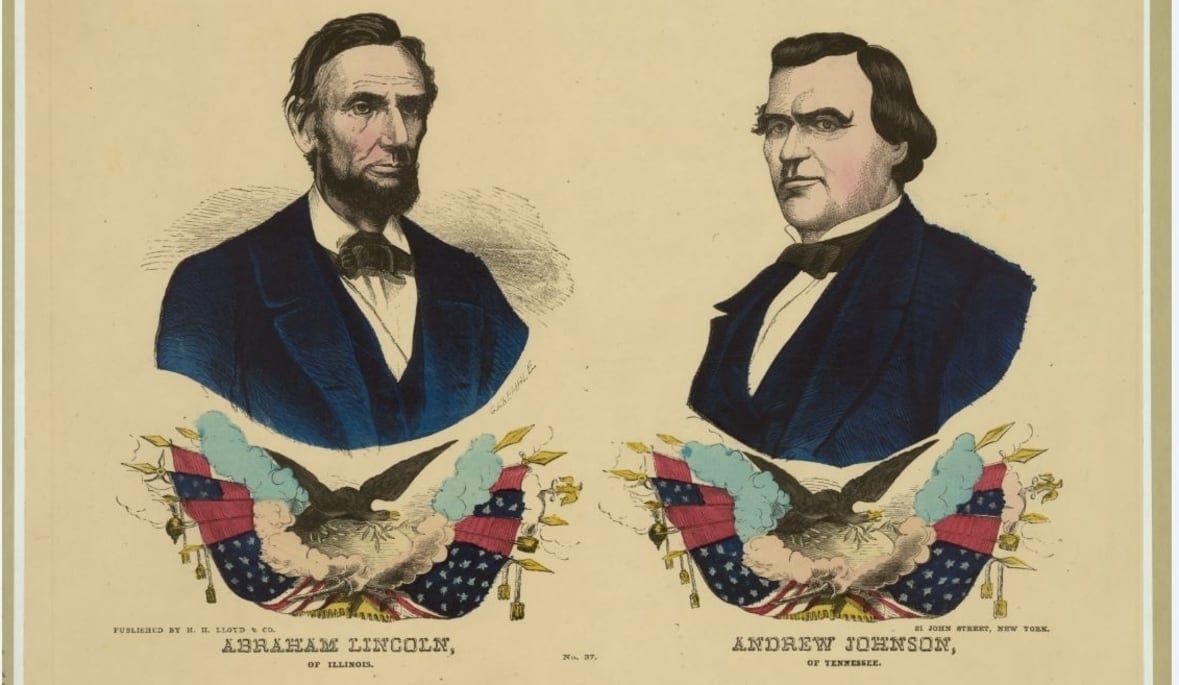
Lincoln Wins Reelection
In advance of the November elections, some states, including Indiana, Ohio and Pennsylvania, voted for governors and congressmen.
Republicans gained 20 additional House seats, and only one Democratic governor was elected — an exceptionally good omen for Lincoln.
The Confederacy wasn’t waving a white flag, though. Battles were being fought in Missouri, the Confederate steamer Tallahassee was scooping up merchant vessels off the East Coast and a group of raiders came out of Canada to rob the banks of St. Albans, Vermont, of more than $200,000.
The year had begun with a blizzard. Storms swept in again when momentous Nov. 8 arrived, affecting telegraph lines and delaying reception of election news. In rain-drenched Washington on Election Day, Lincoln confided to friendly reporter Noah Brooks, that “about this thing I am far from certain.”
But when all the results were finally tallied, he had carried 55 percent of the popular vote — including nearly 80 percent of soldiers’ votes.
Carrying all but three states, he had a 90-percent margin in the Electoral Congress, 212–21, the greatest percentage since James Monroe humiliated John Quincy Adams 231–1 in the 1820 election.
Yet Lincoln carried New York by less than 1 percent, Pennsylvania by less than 4.
He won Illinois, Indiana and four smaller states by less than 10 percent each.
If not for military successes at Mobile and Atlanta and in the Shenandoah Valley, voters in key states might not have chosen to stay the course. The Democrats’ warhorse with a peace saddle might have trotted across the finish line victorious.
No realistic hope remained for the South, but it, too, stayed the course for another six months of blood and destruction.
RELATED
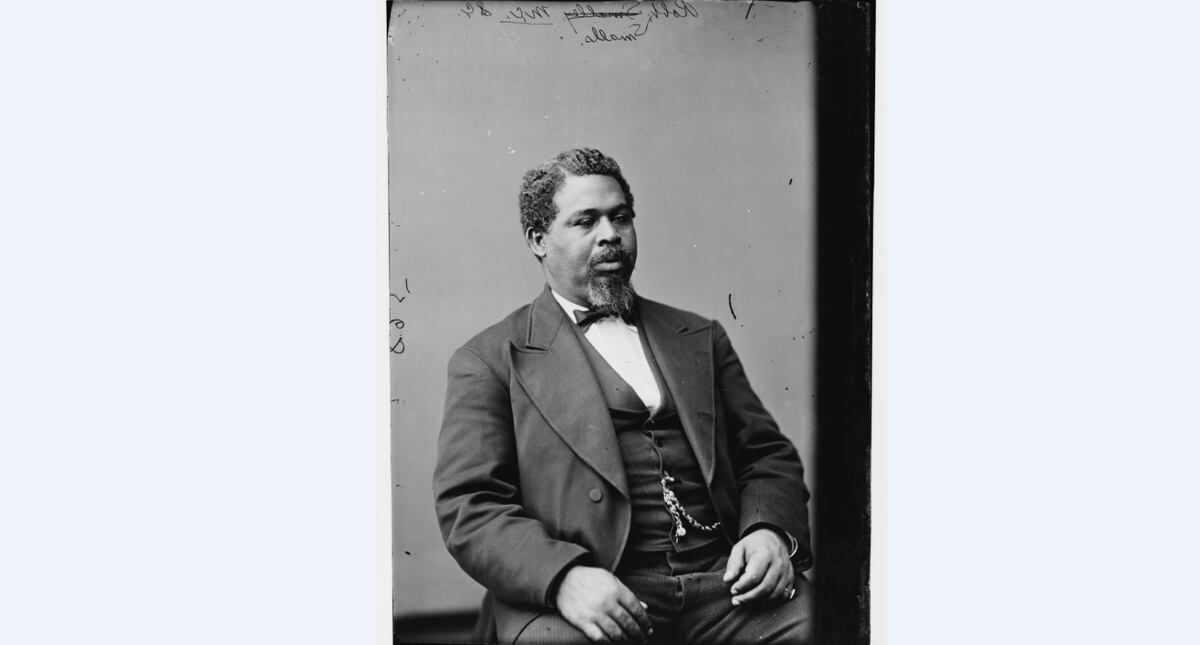
Gerald D. Swick has previously written for America’s Civil War about the Battle of Philippi, the formation of West Virginia and the capture of Atlanta. For further reading, he recommends Reelecting Lincoln: The Battle for the 1864 Presidency by John C. Waugh.
